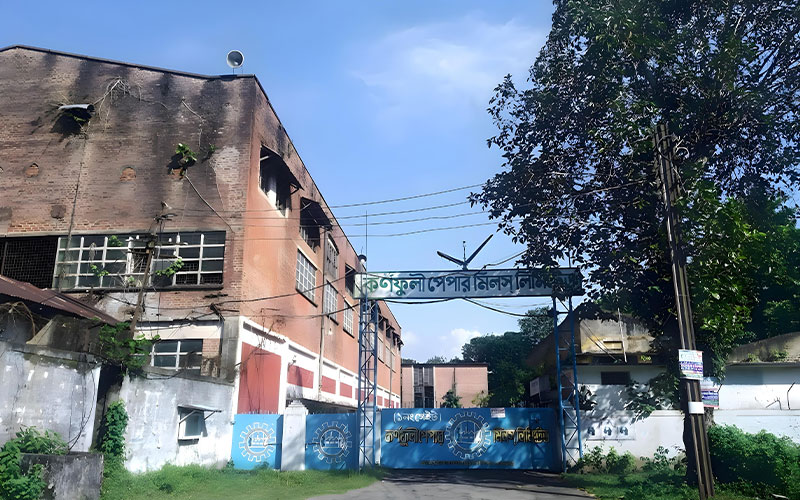Karnaphuli Paper Mill in Bangladesh has been set for revival under a USD 3 billion project that aims to fully repair the facility and establish six new plants within five years. The factory is expected to produce 1 lakh tonnes of paper annually with this revival plan and can resume full-scale production.
Dec 30, 2024

Over the past decade and a half, Karnaphuli Paper Mill in Bangladesh has faced internal issues that have significantly declined the mill’s production capacity and massive financial losses. This has led to a revival plan worth USD 3 billion that aims to fully repair the facility and establish six new plants within five years.
The planned facilities include an integrated paper mill, afforestation projects, a paper-based chemical plant, factories for various basic chemicals and a synthetic polyester fibre plant.
Watch: In Pursuit of Lesser Water Footprint
According to KPM’s General Manager (Operations) Md Mahidul Islam, the Bangladesh Chemical Industries Corporation (BCIC), under which the mill operates, has already submitted the investment proposal to the Ministry of Industry.
“The initiative will make KPM self-sufficient and profitable. Once the new plants start running, the factory will not only meet its own needs but also export raw materials,” said Mahidul Islam.
Additionally, BCIC has formed a high-level committee to reopen the forest reproductive material plant, which produces paper from bamboo and pulpwood. The plant has been closed for the last eight years.
The revival plan for KPM was formulated after the appointment of new Managing Director, Mr. Mohammad Shahid Ullah, an expert in bamboo and pulpwood.
Also Read: Paper & Tissue Show 2025: 10th Edition Returns with Highlight MENA Pulp Week
Talking about the mill’s revival plan, Mr. Ullah said, “KPM is a very old and traditional mill. Since I joined, I found that much of the old machinery is nearly unusable, with some already beyond repair. To resume full-scale production, KPM has submitted a proposal to the Ministry of Industry through BCIC. The factory will be able to produce 1 lakh tonnes of paper annually,” he added.
According to officials, due to lack of modern technology and skilled manpower, the paper mill’s production has dropped to just 2,000-6,000 tonnes annually. Currently, KPM employs 41 officers, 39 staff members, and 180 workers. However, a decade ago, the workforce totalled 5,000 employees.



